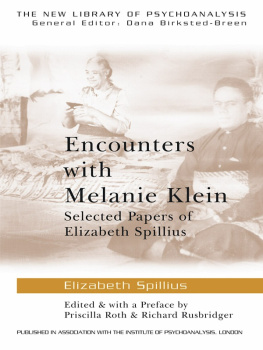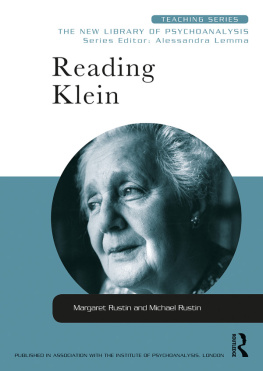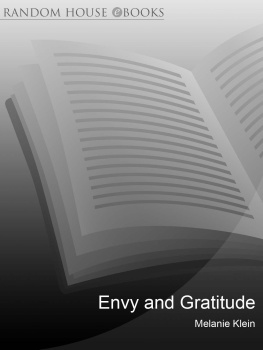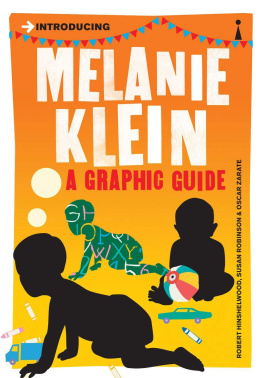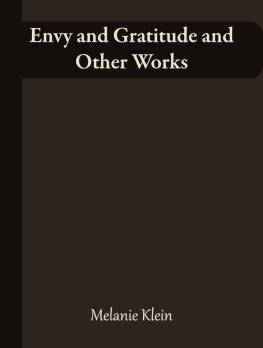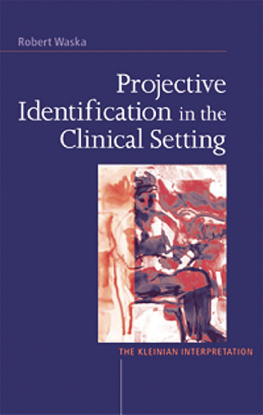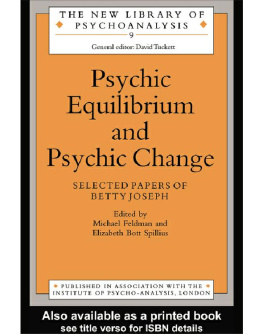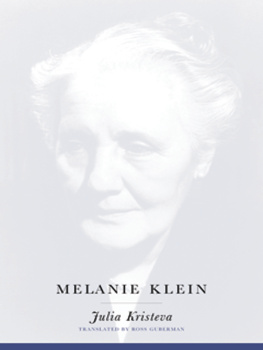Encounters with Melanie Klein
In Encounters with Melanie Klein: Selected Papers of Elizabeth Spillius the author argues that her two professions, anthropology and psychoanalysis, have much in common, and explains how her background in anthropology led her on to a profound involvement in psychoanalysis and her establishment as a leading figure amongst Kleinian analysts.
Spillius describes what she regards as the important features of Kleinian thought and discusses the research she has carried out in Melanie Kleins unpublished Archive, including Kleins views on projective identification.
Spilliuss own clinical ideas make up the last part of the book with papers on envy, phantasy, technique, the negative therapeutic reaction and otherness. Her writing has a clarity which is very particular to her; she conveys complicated ideas in a most straightforward manner, well illustrated with pertinent clinical material.
This book represents 50 years of the developing thought and scholarship of a talented and dedicated psychoanalyst.
Elizabeth Spillius originally studied psychology and anthropology and is now a training and supervising analyst of the British Psychoanalytical Society. She is the author of Tongan Society at the Time of Captain Cooks Visits, published by the Polynesian Society in Wellington, New Zealand and of Family and Social Network published by Tavistock-Routledge. She is a member of the Melanie Klein trust and is involved in researching and writing about the development of Kleinian and post-Kleinian thinking. She has edited Melanie Klein Today Volume 1: Mainly Theory and Volume 2: Mainly Practice, published by Routledge in the New Library of Psychoanalysis series.
Priscilla Roth and Richard Rusbridger are training and supervising psychoanalysts of the British Psychoanalytical Society.
First published 2007
by Routledge
27 Church Road, Hove, East Sussex, BN3 2FA
Simultaneously published in the USA and Canada
by Routledge
270 Madison Avenue, New York, NY 10016
Routledge is an imprint of the Taylor & Francis Group, an informa business
This edition published in the Taylor & Francis e-Library, 2007.
To purchase your own copy of this or any of Taylor & Francis or Routledges collection of thousands of eBooks please go to www.eBookstore.tandf.co.uk.
Copyright 2007 Elizabeth Spillius
All rights reserved. No part of this book may be reprinted or reproduced or utilized in any form or by any electronic, mechanical, or other means, now known or hereafter invented, including photocopying and recording, or in any information storage or retrieval system, without permission in writing from the publishers.
This publication has been produced with paper manufactured to strict environmental standards and with pulp derived from sustainable forests.
British Library Cataloguing in Publication Data
A catalogue record for this book is available from the British Library
Library of Congress Cataloging-in-Publication Data
Spillius, Elizabeth Bott, 1924
Encounters with Melanie Klein : selected papers of Elizabeth Spillius / Elizabeth Spillius.
p. ; cm. (New library of psychoanalysis)
Includes bibliographical references and index.
ISBN-13: 978-0-415-41998-7 (hardback)
ISBN-10: 0-415-41998-0 (hardback)
ISBN-13: 978-0-415-41999-4 (pbk.)
ISBN-10: 0-415-41999-9 (pbk.)
1. Klein, Melanie. 2. Psychoanalysis. 3. Child analysis. 4. Anthropology. I. Title. II. Series: New library of psychoanalysis (Unnumbered)
[DNLM: 1. Klein, Melanie. 2. PsychoanalysisEssays. 3. AnthropologyEssays. WM 460 S756e 2007]
RC506.S665 2007
616.89'17dc22
2006039502
ISBN 0-203-94701-0 Master e-book ISBN
ISBN 978-0-415-41998-7 (hbk)
ISBN 978-0-415-41999-4 (pbk)
Preface by the editors
Elizabeth Bott Spillius occupies a unique position among contemporary Kleinian psychoanalysts. She is a renowned training and supervising analyst, teaching for many years at the British Society and also in Europe and North and South America. But anyone familiar with the literature of Kleinian psychoanalysis over the last 20 years realizes she is more than that as well in her capacities as chronicler, archivist, editor and historian, she is Boswell to the Kleinian Dr Johnson. How, in the future, psychoanalysts think about the development of post-Kleinian thought will be profoundly affected by Spilliuss description, understanding and organization of these ideas.
Her history and her training have predisposed and prepared her for this role: she grew up in Canada in an academic family with ties to the wild Canadian countryside as well as to university life. She graduated from the University of Toronto and then went to graduate school to study anthropology in Chicago, arriving in London in 1949 to do further work in anthropology at the London School of Economics and the Tavistock Institute of Human Relations. What this has meant is, first of all, that she has never really lost her North American voice she is direct, unfussy, open-minded and straight-talking. Her writing is at the same time personal and matter of fact.
Secondly, she consistently writes from the dual viewpoints of a psychoanalyst who is also a social scientist: in everything she studies she is by temperament and by training both a participant and an observer. In the first paper in this book, Anthropology and Psychoanalysis () she describes the relationship between these two disciplines, but as one reads through the book, one can see this complex interrelationship running through all her work. Development always interests her her own, that of her patients and the development of her two fields of study. She is interested in how and also why one idea develops out of another, expanding the original or diverging from it. This interest has both anthropological and psychoanalytic aspects as she explores layers of theoretical meaning, unpicking the different roots and the differing paths taken by different writers. The trajectory of her life interests her and leads her to an interest in the trajectory of her patients lives and that of each analysis she undertakes; her interest in the course of each analysis is also mirrored by her interest in the trajectory of Kleinian psychoanalysis: how it got here from there. It is also interesting that her lifespan parallels the years of a great development and flowering of the Kleinian school of psychoanalysis; her generation of British analysts developed as the Kleinian movement developed.
Her ability to be both participant and observer, both inside and outside what she is studying, manifests itself in a number of ways. In the first place it is clear in her clinical work with her patients, and, of course, this is the position most psychoanalysts wish to occupy. Spillius explicitly describes the way she adheres to a view of technique whereby she allows herself to be fully engaged in her patients material, subjected to whatever pressures and pulls the material brings, and simultaneously, or from time to time within the session or afterwards, or when it is important that she do so, she emerges from this identification with the patient and/or his objects to observe the process that has been going on. She notes that this technique has its roots in Freuds views of the countertransference, was developed in the work of Racker and Heimann, and, while it has become characteristic of many of her Kleinian colleagues, is not at all a technique adhered to by all contemporary psychoanalysts.
Beginning with her editing of the two-volume Melanie Klein Today, Spillius has looked at the work coming out of the Kleinian and contemporary Kleinian school with a similar binocular vision. She is a participant in the rich and growing body of work from Kleinian analysts (her papers here

